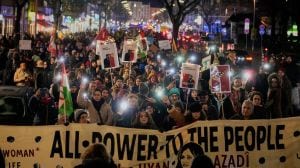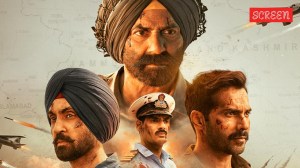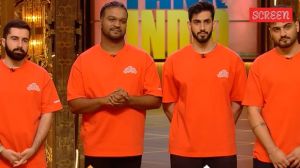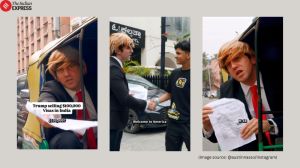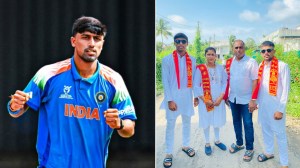After Twenty Five
It is 7 pm. She packs a few necessities in her handbag and makes way to the popular pub in the neighbourhood.
It is 7 pm. She packs a few necessities in her handbag and makes way to the popular pub in the neighbourhood. It helps that Hawaiian Shack is down the road from her house in Mumbais Bandra because Sheen Lalwani goes there every day. Once the crowds begin to fill in,she spends the evening keenly watching the staff serve people. A little before the pub is to close for the evening,she heads to the bar,picks up two bottles of vodka and pours them down the throat of those who are willing its on the house.
A ritual established by her late father Romy,the founder of Hawaiian Shack,it has been continued by Lalwani who now manages the business. However,the 30-year-old herself is an occasional drinker,limiting herself to a drink or two in a year. I dont enjoy the taste nor do I need any substance to elevate my mood, she explains. But Lalwanis choice does not stop her from voicing her criticism on the issue of minimum legal age for alcohol consumption in the state.
In June last year,the Maharashtra government raised the minimum age for consumption of hard liquor from 21 to 25 years the bar for beer and wine remains unaltered. The decision was met with dissent on part of citizens as well as various social rights groups who opposed not so much the age limit but the idea of the state dictating an adults freedom to make decisions. The argument was basic,but strong: if an Indian can vote at the age of 18 and men can marry at 21,then why does the government behave like Big Brother when it comes drinking,partying and womens choice of clothes? Other states such as Karnataka,Gujarat,and Delhi too,have liquor restrictions.
Twenty eight-year-old Nevil Tambadia,who co-owns Bandras popular restobar Bonobo,says that it is natural for the lawmakers to want to protect its citizens,but setting a minimum age for alcohol consumption does not necessarily mean that people will exercise self-control. I know 30-year-olds who have the emotional quotient of adolescent and others who,at 20,are mature. At some point,everyone learns to make choices responsibly and age is hardly a deciding factor. says Tambadia.
Actor Imran Khan,who filed a Public Interest Litigation soon after the Maharashtra government passed the rule,adds that the fault lies in the term moral policing. Policing can be legal,not moral,he points out. An occasional drinker,Khan asserts that his PIL is an attempt to fight for Indian citizens civil liberties. Everyones sense of morality is individual,but some recent incidents such as the Ram Senas stand in Bangalore,the recent party bust in Mangalore and similar incidents in Mumbai have demonstrated that those in power are trying to reinforce their idea of morality on citizens; they get to decide what is right and wrong, says Khan.
History has examples of states where oppression has led not only to rebellion but has also endangered the law. Followed by years of suppression,the Iranian revolution brought with it several problems,such as increased drug abuse and higher suicide rates. Prohibition in America in the Twenties gave rise to bootlegging and organised crime,something that teetotaler state Gujarat is witnessing today.
Vigilance,adds psychologist Deepti Makhija,is not the solution,education is. Stopping youngsters from consuming alcohol will only further fuel their desire for it. Instead,Indian youth needs to be made aware of the effects of alcohol at the school and college level. It needs to be instilled in them how it elevates mood but also affects neurological balance. People,irrespective of their age,dont realise when alcohol gradually takes over their system. An informed decision will perhaps help Indians self-regulate, she says.
Lalwani seconds Makhija. Introduced to alcohol by her mother on her 18th birthday,she was also informed of the effects it can have when consumed in excess. That,along with my revulsion for the taste,helps me limit my consumption without the government breathing down my neck, she says. So while,there is hardly any attempt in favour of drinking,it is the enforced laws in the name of citizens good,thats causing raised eyebrows. Will India turn into a police state?
- 01
- 02
- 03
- 04
- 05








